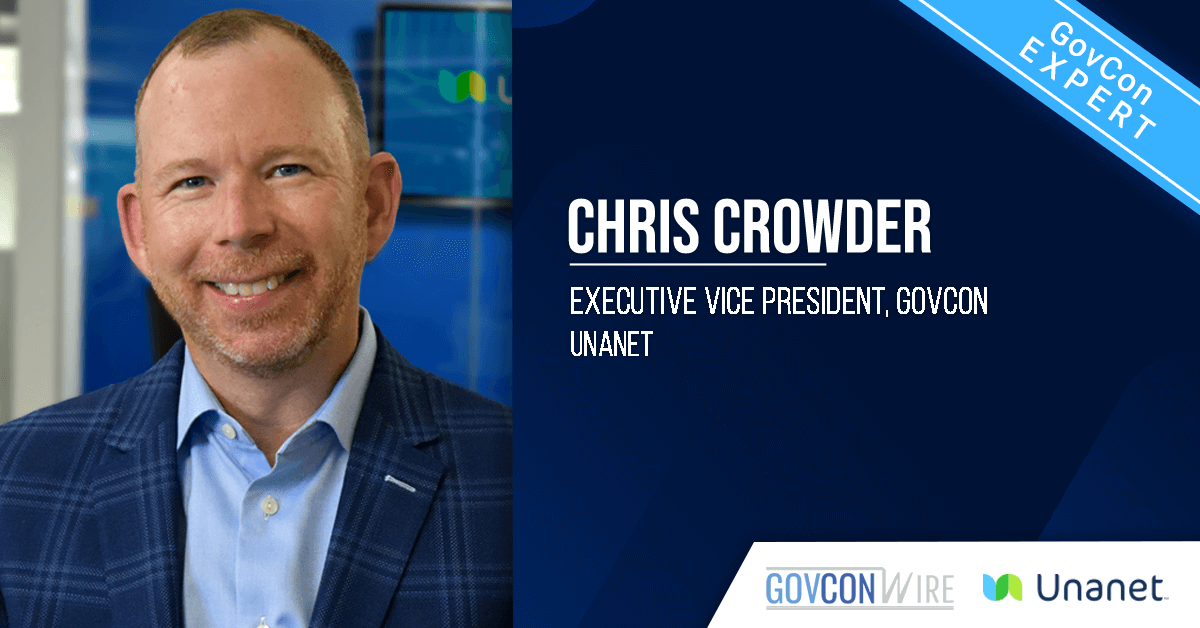By Chris Crowder, Executive Vice President, GovCon, Unanet
Winning contracts and growing your business with government stakeholders requires a well-structured approach to managing critical data and relationships while streamlining workflows and aligning internal teams. To successfully compete, government contractors should leverage every advantage to secure lucrative opportunities and build lasting partnerships.
A customer relationship management system, when implemented strategically, becomes an essential tool for achieving these goals. Let’s take a closer look at the essential role of using the right CRM in government contracting — the key benefits, core features, best practices and long-term impacts of an effective CRM strategy.
What Is CRM? More Than Just a Contact List
A CRM is not merely a tool for tracking contacts — in reality, it has the capacity to be so much more.
While contact management is a component, limiting your understanding of CRM to this function drastically underestimates its potential value. A modern CRM, as it relates to U.S. government contracting, is a centralized platform, acting as a single source of truth for all interactions, opportunities and data related to government contracts. It drives greater internal collaboration, automates workflows to drive productivity and provides true insight into the health (or lack of) of your team’s performance, pipeline, revenue and margin.
This insight is crucial. Without access to real-time data and visibility into business performance, teams operate reactively without the proper visibility into their projects and performance. According to Unanet’s 2023 GAUGE Report, nearly a quarter of executives believe their firm’s pipeline forecasting lacks accuracy, with only 18 percent categorizing it as “very accurate.”
This highlights the urgent need for government contractors to invest in advanced forecasting tools and methodologies — a need that a CRM is specifically designed to address, empowering better decision-making and strategic planning.
Core Features of an Effective CRM
An effective CRM for government contractors offers a comprehensive suite of features designed to support the entire contracting lifecycle:
- Relationship management: Manage your prospects, customers, partners, contacts and activities to build stronger relationships with government stakeholders.
- Pipeline management/sales forecasting: Paint a clearer picture of your pipeline so that you can enhance your overall ability to create accurate forecasts. Capture, track and report on different types of opportunities so you can improve the opportunities you select and invest in to improve your probability of win, or PWIN, and revenue.
- Proposal management: Streamline proposal development through collaboration, pre-approved content and AI-powered tools to dramatically reduce the time to create winning proposals.
- Customizable dashboards and reporting: Get real-time insights into KPIs, track progress and identify areas for improvement, enabling informed, proactive decisions.
- Integration capabilities: Integrate with your enterprise resource planning and marketing intelligence tools for a holistic business view.
- Adaptability: Your CRM should easily update and evolve to meet changing business needs and regulations.
Implementing a CRM Strategy for GovCon
Implementing a CRM system is a strategic decision that requires careful planning and execution. Here are key criteria to consider when devising your strategy:
- Determining the need for a CRM: The first step is recognizing the need for a CRM. This often arises from a struggle to achieve growth objectives or taking advantage of ever-changing opportunities in the marketplace. To start, you need to understand the business impact you are looking to achieve.
- Understanding ROI: Carefully consider the potential return on investment. Also lay out the impact of ROI and total cost of ownership, or TCO. A well-implemented CRM should generate significant returns by improving efficiency, increasing win rates and driving revenue growth.
- Requirements gathering: Conduct a thorough requirement-gathering process to identify your specific business challenges and translate them into functional requirements for the CRM. Identify the ways in which you hope the CRM will resolve specific business challenges to better drive ROI.
- Selecting the right platform: Choose a platform specifically designed for government contracting, that addresses the unique needs of the industry. Some examples of what your CRM should be able to do is manage the Shipley process, integrate with government portals and track compliance.
- Compliance: The CRM should assist in managing and tracking compliance requirements related to government contracts.
- Have a plan and support in place: A successful implementation requires a clear project plan, strong executive sponsorship and active involvement from key stakeholders.
- Training and coaching: Provide comprehensive training and ongoing coaching to ensure that users are proficient in using the CRM and maximizing its value.
The Long-term Impact of CRM in GovCon
A CRM implemented strategically and correctly, with the right KPIs in mind, can transform the way government contractors operate. Your CRM can help you achieve stronger stakeholder relationships, sharper efficiency and greater success in a fiercely competitive marketplace. With a single, centralized platform, government contractors can manage data more effectively, automate tedious tasks and foster seamless collaboration across teams. It’s not just a system, but the backbone of a smarter, more strategic approach.
The right CRM allows you to align your people, processes and technology. The payoff? Higher win rates, steady growth and a clear edge in a rapidly evolving industry.



